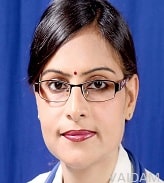A therapist must be consulted for Balance Disorders treatment.



Plan Travel to Treatment : Under One Roof
Transparent - Professional - Without Hassles
Send your reports and preferences to us
Receive quotation(s) within 48 Hours
Get received by us at destination
Get treated and fly back
Our Services for Balance Disorders Treatment in Fortis Hospital Noida
Transparent - Professional - Without Hassles
Book Doctor Appointment
Consult on Video or in-person at Hospital
Compare Cost Estimates
Hospitalisation Support
The package typically includes the cost of the tests too. The common ones before an augmentation cystoplasty include some blood tests such as glucose level tests, blood clotting tests, blood chemistry, and blood count test. Some other tests conducted are the hearing test, Posturography test, Electronystagmography, Rotary chair test, Vestibular evoked myogenic potentials test, MRI, CT scan and blood pressure and heart rate test.
All medicines in the time frame that the patient is at the hospital are covered in the package. Medicines taken for recovery are usually not covered in the package price.
There are various treatment modalities available for balance disorder treatment such as balance treatment exercises, positioning procedures. Surgery is needed in some case of you have Menieres’s disease or acoustic neuroma. Sterotactic radiosurgery is done which delivers the radiation to the tumor without need of any incision. It will take around 18 months to 2 year to recover from the surgery and after.
If the patient has undergone surgery then he has to stay in hospital for three to five days after surgery before discharge. The recovery of the surgery can be lengthy with some activity and work restrictions. The cost of the hospital stay will be included in the package.
As per the norm the treatment will only be covered if it is under if the treatment is surgical or if the patient needs treatment for long term.
You can choose from a variety of procedures such as Balance retraining exercises, positioning exercises, diet and lifestyle changes which are good alternatives to achieve the same benefits but at a comparatively cheaper cost and without scarring or extended downtime.
Mr. Bhye Zaheed Goolamun
My father also went to Nanavati hospital last year and received excellent treatment. That's why I brought my husband there for his sinusitis treatment. I highly recommend this hospital.
Aristotles De Almeida
My son was born with a hearing problem, that's why we came to India for his treatment, and we are so relieved to be leaving Medanta Hospital after his successful surgery. Highly recommended hospital.
Little Fawzia
We are fortunate that we reached out to Dr. Kumud Kumar Handa for our sister's ENT operation. Dr. Handa is truly the best ENT Surgeon in India. We are very happy with the treatment. Thank you so much
Nur-e-Tasmia
Dr. Kumud Kumar Handa did my vocal cord surgery, for which I am very grateful. Thanks for your assistance.
Amanul Mohamed
I was experiencing hearing issues for the past three months. So, I decided to consult Dr. K. Krishna Kumar. I am glad he treated me; otherwise, this would not have been possible. A big thanks to him.
Balance disorder is a condition which can make you feel unsteady or dizzy you may feel as you are moving, spinning or floating while walking. It can affect daily activities and it can difficult psychogically and emotionally.
Yes, balance disorder can be cured most progressive disorder cannot be cured but medications and rehabilitation
Some of the symptoms of balance disorder are dizziness or vertigo, staggering when you try to walk, lightheadedness, faintness, or a floating sensation, blurred vision, confusion or disorientation. Other symptoms might include nausea and vomiting; diarrhea; changes in heart rate and blood pressure; and fear, anxiety, or panic.
Balance disorder are caused due to medications, ear infections, head injury or anything which can affect inner ear or brain. Problems that affect the skeletal or visual systems, such as arthritis or eye muscle imbalance, can also cause balance disorders
Some types of balance disorders are:
Diagnosis of a balance disorder is difficult. An otolaryngologist and an audiologist can detect this. otolaryngologist is a physician and surgeon who specializes in diseases and disorders of the ear, nose, neck, and throat. An audiologist is a clinician who specializes in the function of the hearing and vestibular systems.
When you feel unsteady, lightheadness, blurred vision, disoriented, having tendency to fall then you should contact your doctor for treatment of balance disorders.
Stereotactic radiosurgery might be an option for some people with acoustic neuroma. This procedure delivers radiation precisely to your tumor and doesn't require an incision.